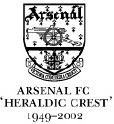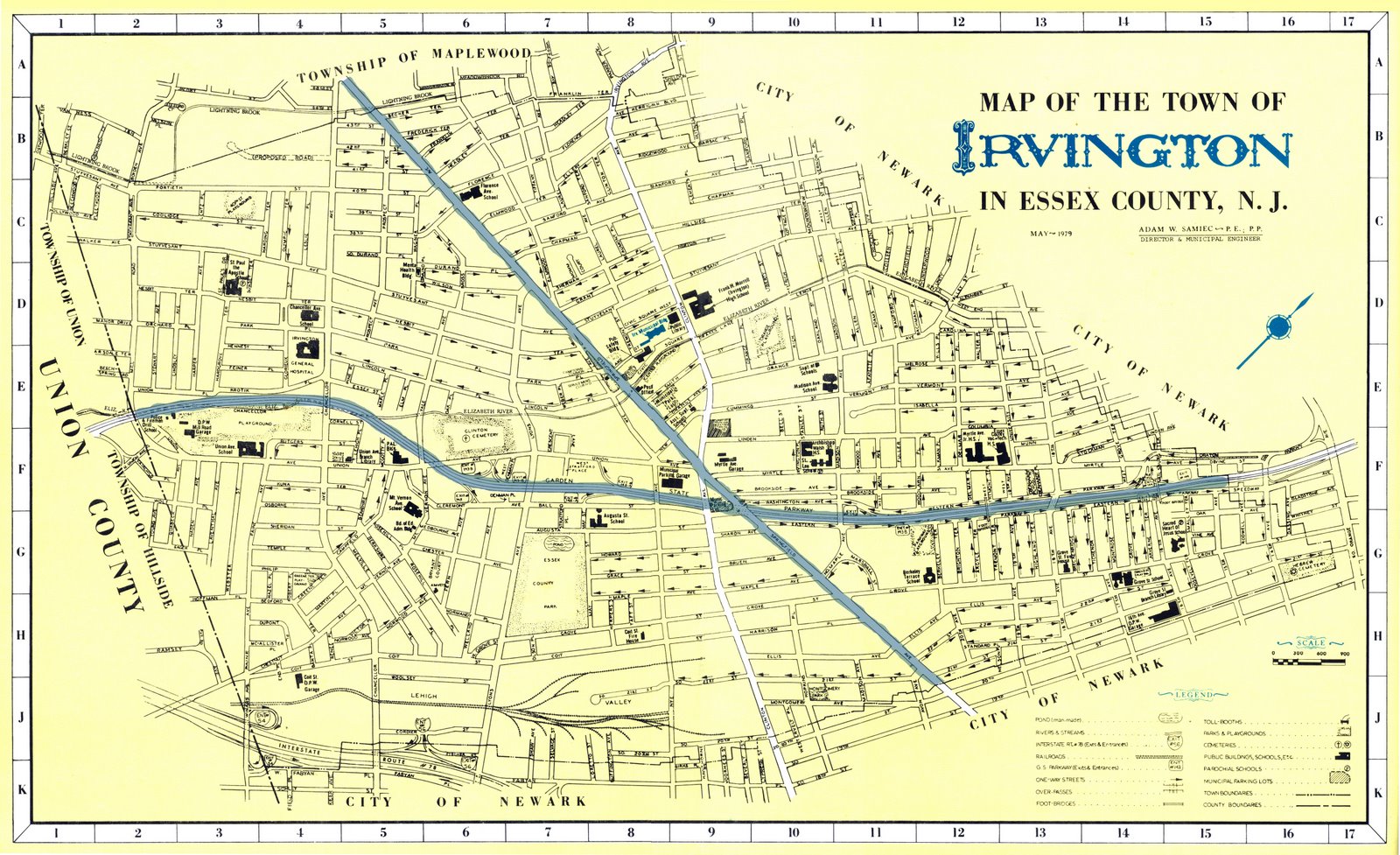Well I have finished the paper. My conclusions in working with the applications, the news accounts of the time and just a simple look at the recent state affairs put together a decent glimpse at the history of urban planning (or lack thereof) in Irvington. this was not, in the end, a depressing work - I am confident that current structured planning and business revamping will take hold if we continue, as the larger community, to listen to the people that live in our urban centers and put planning in the hands of people that are capable of doing so.
In the end the documents showed that there was no clear plan other than to skirt East Ward needs and community input as required under the grants. The grants did serve to improve infrastructure in the largely white areas of the North Ward and rehabilitate areas like slated for use by the elderly and disabled. However by the time a full transition occurred in both population and elected officials, there had been years of neglect in the neediest of areas. Past 1983 the Irvington leadership did not seem to improve with use of the grant money and funding at the federal level was significantly cut - there was no saving grace from elected black politicans as many might expect. It would be pure conjecture to say that better, focused use of these funds would have created a success; however what cannot be denied is the complete abandonment in the years to follow on a local, federal and state level until the problems reached a boiling point. It is not until recently, with Mayor Wayne Smith that Irvington is coming out into itself and owning the problems of Camptown...
Saturday, April 18, 2009
Friday, March 20, 2009
Not thrilled
I am not as thrilled as I thought I might be writing this piece to be honest. I am sure that many drafts do not measure up to the final product so I hope to spend more time organizing my thoughts in a more logical pattern - there is a certain amount of fear and uncertainty involved when you take on a more social history. It is a good feeling actually but I am wondering if I am doing the topic justice?
Tuesday, March 10, 2009
A Town in Transition
An interesting story has evolved from the look into the grants from 1977 to about 1983. I am finding that there was a serious disconnect between elected officials and an emerging black population. During the Carter Administration's HUD part of the grant process was to set up a community public policy whereby citizens had a say. Accounts of the time suggest that Irvington would not consider the plans of several groups including the Citizen Improvement League. The League wanted more say in the public safety plan and improvements to the East and South Wards; Mayor Miller and Community Development Director Henry Blank filed applications with their own plans. The very idea of the grant was to put the decision making process back into local government - an ideal of New Federalism - to lessen federal involvement. What seemed to transpire is that the goals to keep people from leaving Irvington may have had unintended consequences. There is no indication that when, in the mid to late 80's, that the grant was better utilized when black officials administered grant funds either - there consistently lacked clear goals until Mayor Wayne Smith came along in 2002.
Tuesday, March 3, 2009
Interviews
I was really interested in tracking down some of the people involved in the grants I am researching to get a better feel for the decisions involved for who was to receive benefits and who did not. The goal of the Community Development grants (even to date) was to put the money in local hands under federal guidelines. Well, unfortunately the people who were in charge of administering the grant have either died or moved south but I was able to track down a vocal citizen quoted in many local accounts of the time (roughly from 1977-1980). Raymond Burgess was a housing association leader in the East Ward who was quoted as saying, "the town has failed to allow meaningful input through citizen participation...The racial and ethnic polarization of this town and the reflective attitudes of the administration have adversely and negatively effected the application (of the grants)." Burgess and his Citizen's Improvement League challenged the town's 1977 application to HUD on the grounds they did not involve community input as required or the use of minority contractors as required. Burgess is now a man in his 80's and living in a neighboring town but I look forward to speaking with him - it took a lot to convince him I was legit and was not going to rob him.
Tuesday, February 17, 2009
The Central Questions
The central questions of my paper will be - What impact, if any, has the Community Development Blocks Grant had on the Township of Irvington through 1976 to 1995? What was the role of local government, State (after 1981) and federal (mostly HUD) and to what extent were community organizations involved in decision process? In what shape was the township in to accept a large gang population being run our of Newark in the late 90's and early 00's? Sources include the descriptive HUD applications, the grant progress reports, Star Ledger and Irvington local news on public discourse regarding the grants, several journal studies of the larger picture of the grants themselves, NJ Assembly proceedings regarding problems of Irvington, demographics and hopefully an interview or photo arrangement. This is a sharp departure from the papers I have written for most classes so far so....
Thursday, February 12, 2009
Back to the filing cabinets
I was back to the Irvington Public Library today - they had 6 fire alarms go off during my 2 hours there and the photocopying machine does not work; my handwriting bites. I was fortunate enough to locate close to twenty years (1976-1995) worth of information on the town's applications and progress reports for the HUD Community Development Block Grants as well as some newspaper accounts related to community reaction/dismay over the handling of the grants. For the most part I am finding the opposite of what pessimistic me was expecting - the grants had a positive overall effect from year to year. The East Ward projects, however, were given less attention than some infrastructure issues like sewers and sidewalks in more middle class areas. With the influx of drugs in the mid 80's you can start to see cuts in funding to public projects and more going to counselling and treatment. The Congress cut funding to these grants in the mid 1990's by over 50% hampering efforts - then in 2003 they were cut again by 50%; the town was left to fend for itself and it seems to have cost them dearly as gang violence escalated.
So I am surprisingly optimistic I have enough to work with in terms of the life of the grants; I now need to research HUD, Newark movement and maybe more on community organizations.
So I am surprisingly optimistic I have enough to work with in terms of the life of the grants; I now need to research HUD, Newark movement and maybe more on community organizations.
Saturday, February 7, 2009
Field Trip
I had a half day on Thursday so I decided to get to the Irvington Library. Initial research online is not to promising, however overview histories of Irvington and search of demographics over time has lead me to significant changes in the late 70's and early 80's; prior to that Irvington was a blue collar mecca. The changes did not occur over night and not an acute outcome of the Newark riots.
At the Library, the local history room left much to be desired. It took them 20 minutes to find the key and the last time it was signed out was in 2001. In the room itself records were in no particular order and shoved into filing cabinets in hanging folders - but there was something to work with. I started with the cabinet labled Community Development (which is in the same drawer as crime - and it is not alphabetic!) and to be honest I have not looked back. When I began pouring through the many articles, town meetings and plans, I began to see a series of failed community development goals that looked good on paper when money was requested, however when the result was reviewed years later - many would be disappointed. In particular, a HUD grant that was awarded over an 8 year period from 1976 to 1983 was of particular interest to me as it has a yearly application (some 300 pages) and a yearly accomplishment ledger - this is the prime years where opportunity existed but the Newark push down Springfield Avenue began. There is also a discourse in clippings about community concerns for the grant not being given forum. This looks promising - it may be narrow but I think it might work. I will be cross referencing with the crime folders as well to see what can be linked.
At the Library, the local history room left much to be desired. It took them 20 minutes to find the key and the last time it was signed out was in 2001. In the room itself records were in no particular order and shoved into filing cabinets in hanging folders - but there was something to work with. I started with the cabinet labled Community Development (which is in the same drawer as crime - and it is not alphabetic!) and to be honest I have not looked back. When I began pouring through the many articles, town meetings and plans, I began to see a series of failed community development goals that looked good on paper when money was requested, however when the result was reviewed years later - many would be disappointed. In particular, a HUD grant that was awarded over an 8 year period from 1976 to 1983 was of particular interest to me as it has a yearly application (some 300 pages) and a yearly accomplishment ledger - this is the prime years where opportunity existed but the Newark push down Springfield Avenue began. There is also a discourse in clippings about community concerns for the grant not being given forum. This looks promising - it may be narrow but I think it might work. I will be cross referencing with the crime folders as well to see what can be linked.
Subscribe to:
Comments (Atom)













